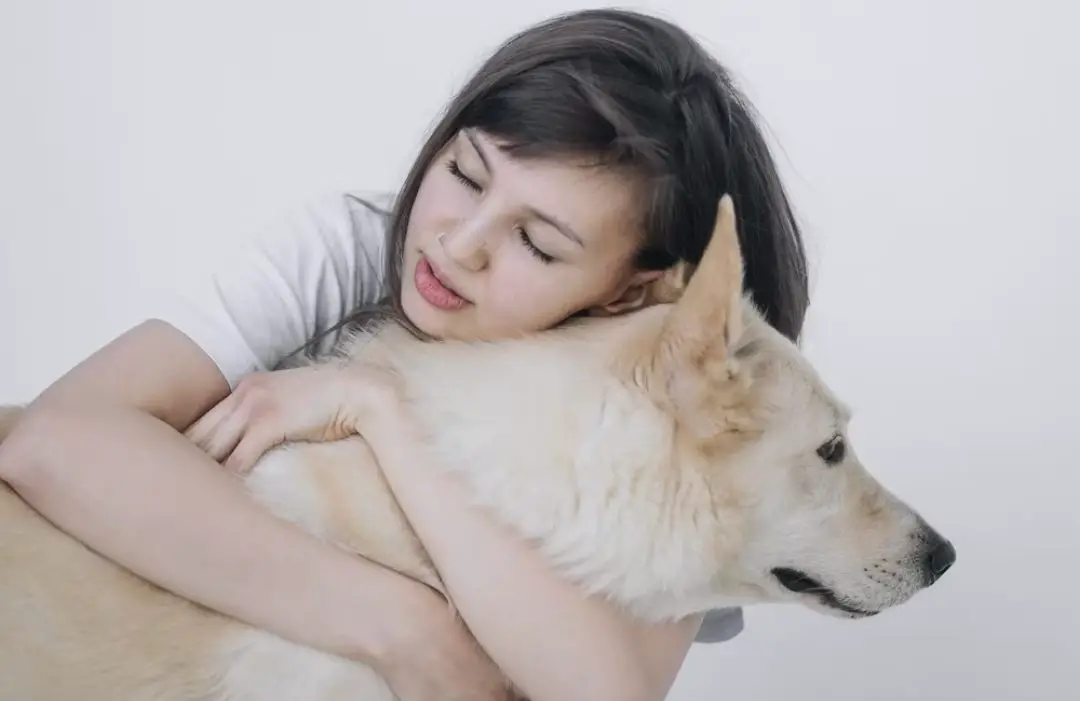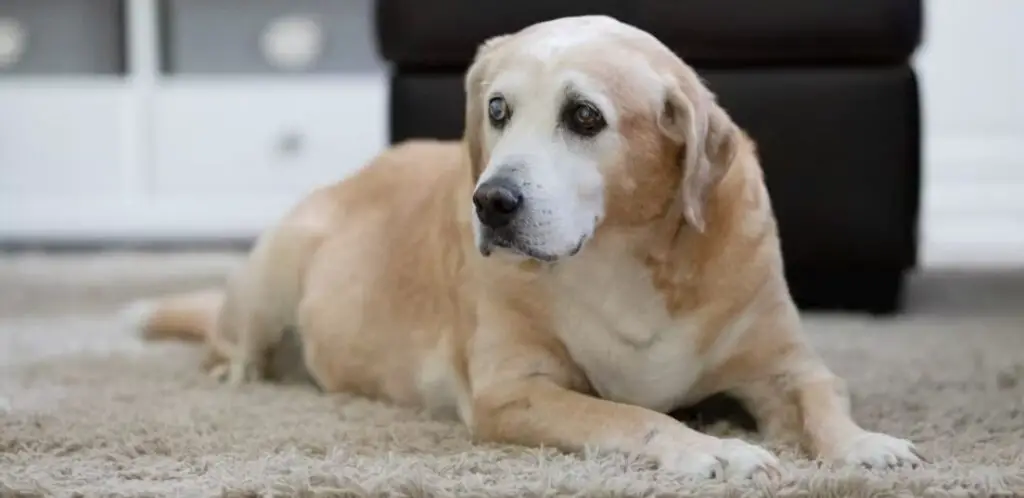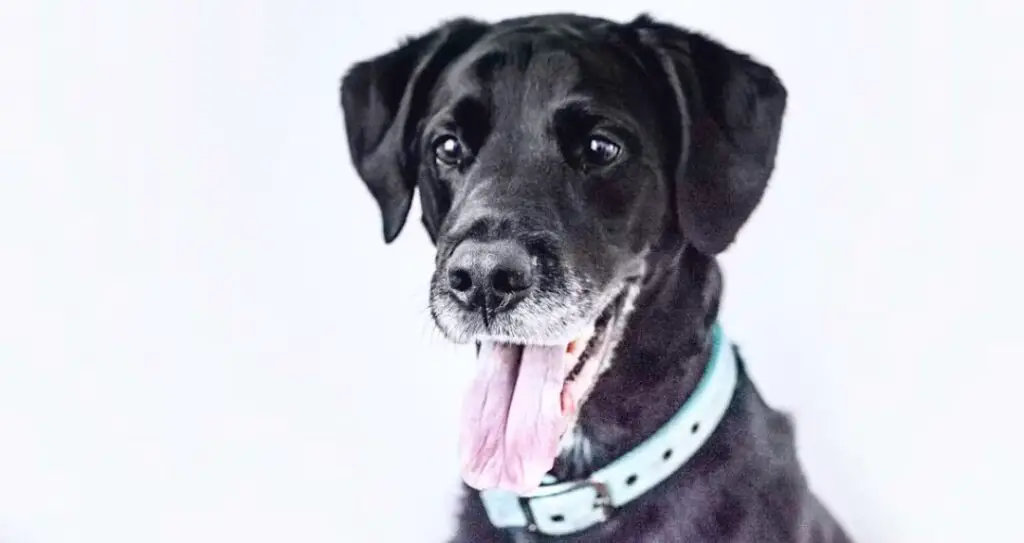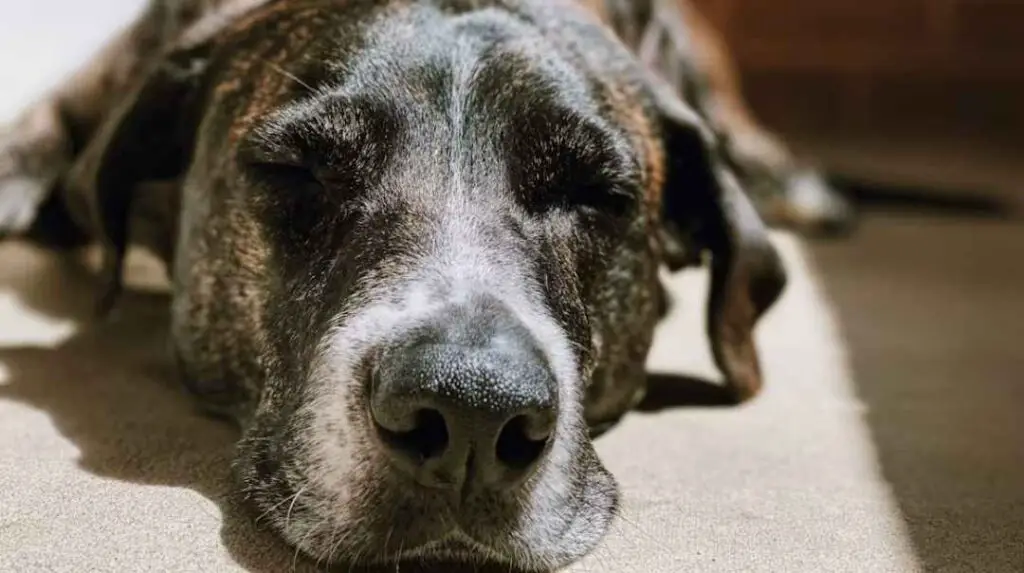16 Most Important Senior Dog Care Tips

As our furry friends grow older, they deserve a little extra TLC.
In this blog post, we’ll dive into the world of senior dog care, exploring the best ways to keep our beloved companions happy, healthy, and wagging their tails for years to come.
So, grab a cup of coffee, cuddle up with your senior pup, and let’s embark on this paw-some journey together!
Senior Dog Care
Senior dog care is crucial for maintaining the health and happiness of our furry companions in their golden years.
Regular veterinary check-ups, tailored nutrition, and appropriate exercise are key to managing their changing needs.
Additionally, providing a comfortable environment, mental stimulation, and lots of love and affection helps ensure their quality of life remains high as they age gracefully.
Let’s break it down further…
Here are some of the most important senior dog care tips:
1. Regular veterinary check-ups
Just like us humans, senior dogs require regular check-ups to ensure they stay healthy and happy.
It’s important to schedule routine visits with the veterinarian to monitor their overall health and catch any potential issues early on.
During these check-ups, the vet can assess their mobility, vision, hearing, and conduct necessary tests to detect any underlying conditions.
These visits also provide an opportunity to discuss any concerns or questions you may have about your furry friend’s well-being.
Learn more about the benefits of regular vet visits for dogs.
2. Provide a balanced diet tailored towards senior dogs
As dogs age, their nutritional needs change too. It’s crucial to provide them with a well-balanced diet that suits their senior status.
Senior dog food formulas are specially designed to meet the specific needs of aging canines.
These diets typically contain lower calories to help maintain a healthy weight, higher levels of antioxidants to support their immune system, and joint-supporting ingredients like glucosamine and chondroitin.
Of course, consult with your vet to determine the best diet for your senior dog based on their individual needs.
3. Maintain a healthy weight

Maintaining a healthy weight is essential for senior dogs, as excess weight can put unnecessary strain on their joints and organs.
Obesity can lead to various health issues, including diabetes and heart problems.
Regular exercise is a great way to keep your senior dog in shape, but it’s important to adjust the intensity and duration of activities to match their age and abilities.
A leisurely walk or gentle playtime can still provide mental and physical stimulation without overexertion.
Remember, a healthy weight contributes to your furry friend’s overall well-being.
4. Maintaining oral health
Just like humans, dental health is crucial for dogs too.
As dogs age, dental problems can become more prevalent, leading to discomfort and potential health issues.
Regular teeth brushing and dental cleanings by a professional are essential for maintaining good oral hygiene.
Additionally, offering dental chews or toys designed to promote dental health can help keep your senior dog’s teeth clean and strong.
Regularly check their teeth and gums for any signs of tartar build-up, gum disease, or other dental problems.
If you notice anything concerning, consult with your vet for further guidance.
Learn more about dental care for dogs.
5. Spend time with your senior dog
Just like humans, senior dogs thrive on companionship and affection.
Setting aside dedicated time each day to bond with your furry friend can have a profound impact on their emotional and physical health.
Engage in gentle play, go for leisurely walks, or simply relax together.
These interactions not only strengthen your bond but also provide your senior dog with a sense of security and happiness.
6. Providing mental stimulation for senior dogs

Keeping your senior dog’s mind active is essential for their overall wellbeing.
Engage their cognitive abilities with interactive toys, puzzle feeders, or treat-dispensing games.
These activities challenge their problem-solving skills, helping them stay mentally sharp.
Additionally, consider introducing new experiences such as short walks in different environments or playdates with gentle, compatible dogs.
Mental stimulation not only wards off boredom but also promotes a sense of fulfillment in your senior dog’s life.
7. Maintain regular grooming for senior dogs
Maintaining proper grooming habits is crucial for the comfort and health of senior dogs.
Regular brushing helps prevent matting, keeps their coat clean, and promotes healthy skin.
It also allows you to check for any abnormalities like lumps, bumps, or fleas.
Additionally, pay attention to their nails, teeth, and ears.
Keep their nails trimmed to a safe length, brush their teeth regularly, and clean their ears with gentle, veterinarian-approved solutions.
Grooming sessions can be an opportunity for bonding and provide your senior dog with a sense of relaxation and rejuvenation.
8. Providing recommended supplements for senior dogs
Consulting with your veterinarian is vital to determine the specific needs of your senior dog.
As they age, certain supplements can support their joint health, cognitive function, and overall vitality.
Omega-3 fatty acids, glucosamine, chondroitin, and antioxidants are common supplements that may be beneficial to senior dogs.
These supplements help alleviate joint stiffness, support brain health, and boost their immune system.
Always follow your veterinarian’s advice regarding dosage and administration.
9. Keep your senior dog comfortable
Just like us, senior dogs may experience age-related discomfort.
To keep them comfortable, consider investing in a cozy orthopedic bed that provides ample support for their aging joints.
Additionally, adjust their sleeping area to minimize drafts and provide warmth during colder months.
Regular grooming sessions, including brushing and nail trims, can help maintain their coat and prevent matting, which can cause discomfort.
Taking these simple steps will help ensure your senior dog enjoys a comfortable and relaxing environment.
Learn more about dog safety tips.
10. Ensure your senior dog is hydrated
Proper hydration is vital for dogs of all ages, but it becomes even more critical for senior dogs.
As dogs age, their thirst response may diminish, making it essential to encourage regular water intake.
Consider providing multiple water sources throughout your home, especially if your senior dog has difficulty getting around.
Regularly check their water bowl, ensuring it is clean and filled with fresh water.
You may also add moisture-rich foods, such as canned dog food or broth, to their diet to promote hydration.
11. Keep an eye out for joint problems

Joint problems, such as arthritis, are common in senior dogs.
Watch for signs of stiffness, lameness, or reluctance to engage in physical activities they once enjoyed.
Consult with your veterinarian, who may recommend joint supplements or medications to alleviate pain and inflammation.
Consider providing soft, non-slip surfaces for your senior dog to walk on, as this can help prevent falls and further strain on their joints.
Gentle massage and physical therapy exercises can also be beneficial in maintaining their mobility.
12. Make sure they get the recommended regular exercise
While senior dogs may not have the same energy levels as their younger counterparts, regular exercise is still crucial for their overall well-being.
Tailor their exercise routine to their individual needs, taking into account any joint or mobility issues.
Shorter, more frequent walks or gentle play sessions can help keep them active and mentally stimulated.
Swimming is another low-impact exercise option that can provide an excellent cardiovascular workout without putting stress on their joints.
Always consult with your veterinarian to determine the appropriate exercise regimen for your senior dog.
Learn more about exercising your dog.
13. Watch out for weather extremes
Just like humans, senior dogs are more susceptible to the effects of extreme weather conditions.
Whether it’s scorching hot or freezing cold, it’s crucial to protect them.
During hot weather, provide shade, fresh water, and avoid taking them out during the hottest parts of the day.
In colder weather, provide them with cozy blankets and consider using sweaters or jackets to keep them warm during walks.
Remember, their comfort and safety should always come first!
14. Provide comfortable resting areas
As dogs age, they tend to become less active and spend more time resting. Creating comfortable resting areas is essential to their overall well-being.
Consider providing them with soft and supportive bedding that is easy for them to access.
Orthopedic beds can be especially beneficial for senior dogs, as they provide extra cushioning for their joints.
Additionally, ensure that their resting area is located in a quiet and peaceful part of your home to minimize disruptions and promote relaxation.
15. Monitor for signs of illness or discomfort
Regular monitoring for signs of illness or discomfort is crucial for senior dogs. Keep a close eye on their behavior, appetite, and bathroom habits.
Look out for any changes, such as decreased appetite, weight loss, excessive thirst, lethargy, coughing, vomiting, or diarrhea.
If you notice any concerning signs, consult your veterinarian promptly.
Early detection and treatment can make a significant difference in managing age-related health issues.
16. Monitor for behavioral changes

Behavioral changes can be an indication of discomfort or underlying health issues in senior dogs.
Keep an eye out for any unusual behaviors, such as increased aggression, restlessness, confusion, disorientation, excessive pacing, or difficulty in getting up or lying down.
Changes in sleep patterns or interactions with family members and other pets should also be observed.
If you notice any concerning behavioral changes, consult your veterinarian for guidance and support.
Remember, senior dogs require extra love, care, and attention.
Regular visits to the veterinarian, a balanced diet suitable for their age, and gentle exercise tailored to their abilities are also essential components of their overall well-being.
Learn more about an older dog not eating.
FAQs
How do I know when my dog is considered a senior?
Dogs are typically considered seniors when they reach around 7 to 10 years of age, depending on their breed and size. However, it’s important to remember that every dog is unique, and some may show signs of aging earlier or later.
What are some common health issues in senior dogs?
Senior dogs are more prone to various health issues, including arthritis, dental problems, vision and hearing loss, obesity, and cognitive decline. Regular vet check-ups and a healthy lifestyle can help prevent or manage these issues.
How should I adjust my senior dog’s diet?
As dogs age, their nutritional needs change. It’s important to consult with your veterinarian to determine the best diet for your senior dog. Generally, senior dogs require a balanced diet with quality protein, lower calorie intake, and supplements to support joint health.
How can I help my senior dog stay active and mentally stimulated?
Regular exercise is crucial for senior dogs, but it’s important to tailor activities to their individual needs. Shorter, low-impact walks, gentle play sessions, and mental stimulation games can help keep your senior dog engaged and prevent boredom.
Learn more about health issues in dogs.
What can I do to support my senior dog’s joint health?
Joint health is a common concern for senior dogs. Providing a comfortable bed, using ramps or stairs to avoid excessive jumping, incorporating joint supplements, and engaging in gentle exercise can help support your dog’s mobility and reduce discomfort.
How can I ensure my senior dog’s comfort and safety at home?
Creating a senior-friendly environment at home is essential. Remove any hazards that may cause your dog to trip or fall, provide non-slip surfaces, consider installing ramps or steps, and make sure their living area is easily accessible and cozy. Regular grooming and dental care are also important for their overall well-being.
Learn more about dog dying of old age.
Conclusion
In conclusion, caring for senior dogs is a rewarding journey filled with love and compassion. Remember to prioritize their comfort by providing a cozy bed, regular veterinary check-ups, and a nutritious diet tailored to their specific needs. Embrace the golden years with your furry companion, cherishing every precious moment together.
